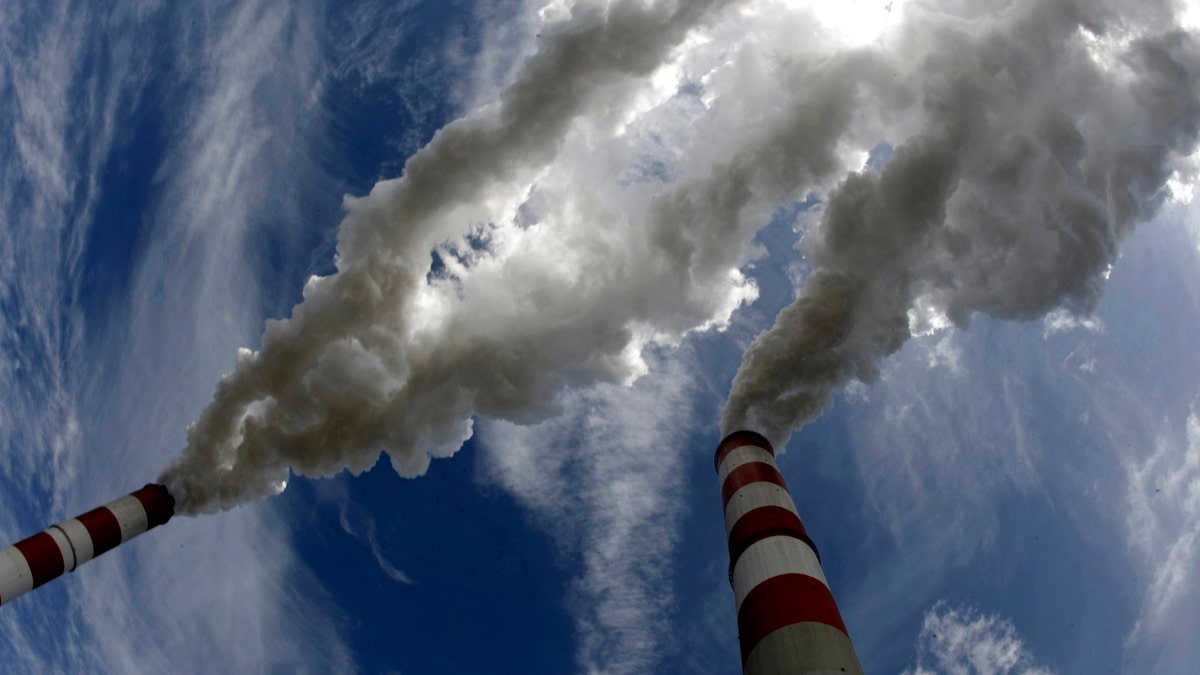
File photo. (REUTERS/Peter Andrews/Files)
Environmental activists are pressuring universities around the country to “divest” and stop all investment in fossil fuels. Many are taking heed, and more than a dozen universities -- among them Stanford and Syracuse -- have already promised to stop all such investments. But around 50 others, such as Harvard, Yale, and the University of Colorado, have decided not to.
On Thursday, New York University’s faculty senate will vote on whether to strip its $3.5 billion endowment fund of fossil fuel investments. The controversial measure is supported by some environmentalists, but critics say that it would needlessly cost the school money.
An NYU faculty working group studying the issue recommends that the university keep its fossil fuel investments due to financial reasons.
“In order to eliminate the $139 million in fossil fuel investments, NYU would have to [end] relationships with 39 funds… this [is] not financially prudent,” their report concluded.
Some students concur.
“This is about making a feel-good statement. But the university is the one that has to pay for it. This would mean forgoing millions in funding for scholarships and facilities,” NYU junior Eli Nachmany told FoxNews.com.
Economists also say that divestment will not hurt oil company stocks because, when a university sells its fossil-fuel stock and the price falls, independent traders see that the stock has become undervalued and snap it up.
But supporters say their goal is simply to send a message.
“The point is not really to devalue the stock, rather to make a statement to those companies, our students, and those who might be paying attention (including you!) that it is prudent to wean ourselves off of fossil fuels. It is a tactic, a means of calling attention to the problem,” David Frank, NYU assistant professor of environmental studies, told FoxNews.com. He added that it’s needed due to a looming danger of climate change.
“The poorest people in the world (particularly in low-lying areas) will suffer the most if we do not take action on climate change… that calls for any tactic that might call attention to the problem,” Frank said.
Experts debate how harmful global warming could be. U.N. models have consistently overestimated the amount of warming in the past, but their current prediction is that the globe will warm between 2.5 to 5.5 degrees Fahrenheit over the next century and that warming in that range would cause the world’s GDP to be about 1.1% lower in the year 2100.
Others say it is hypocritical for a university to claim the moral high ground by divesting, when nearly everything students use – from plastic bottles to air conditioning and computers – are the products of fossil fuels.
“We are extensively relying on those companies’ products and services for so much of what we do every day,” Harvard President Drew Faust has explained. “Given our pervasive dependence on these companies for the energy to heat and light our buildings, to fuel our transportation, and to run our computers and appliances, it is hard for me to reconcile that reliance with a refusal to countenance any relationship with these companies through our investments,” she said.
Frank disagrees that there’s hypocrisy.
“It is not hypocritical to use fossil fuels in order to try to get ourselves off of fossil fuels, particularly since this is simply unavoidable!” he said.
The NYU faculty working group also noted that they are concerned about global warming and that, while they recommend against divestment, they did so partly because the university has better ways to change minds.
“NYU can have an impact through its teaching and research mission. It was in these areas that… NYU can have its greatest impact on global warming,” the report reads.
The author, Maxim Lott, can be reached on Facebook or at maxim.lott@foxnews.com








































